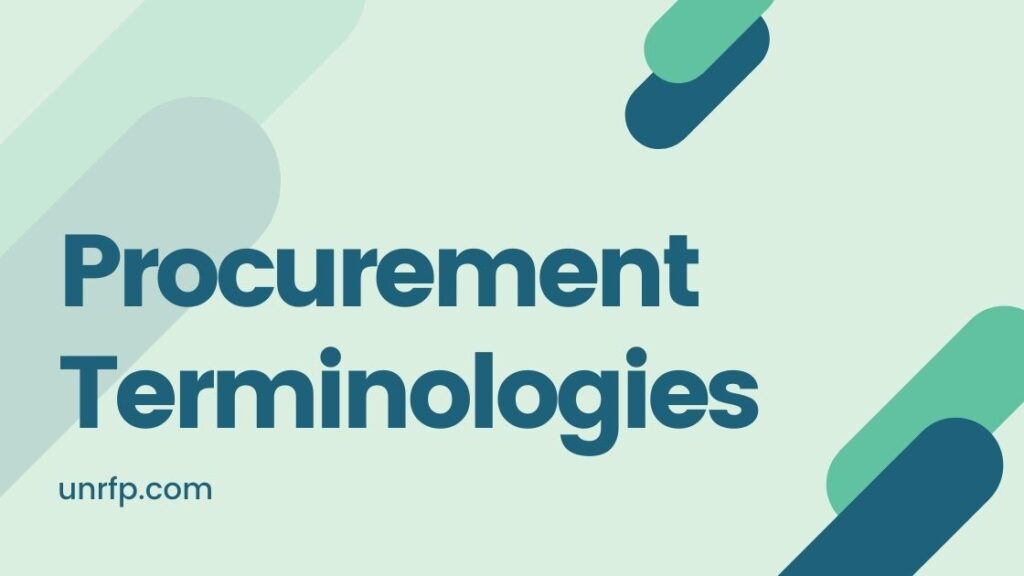Common Terms Used During The Procurement Process

When working with RFPs you might come across a number of unfamiliar terminologies and jargons. It is critical to understand these terms in their entirety to process them correctly, when you come across them. We have listed down common terms associated with the RFP or the tendering process and their explanations
Approved Supplier List
List of verified suppliers whose credentials have been validated, including but not limited to financial stability, licenses, certifications, etc. There isn’t a formal contract with these suppliers but being in this list would mean you are qualified to bid for all or certain category/s of products or services with the client
Bespoke
Made/built or provided for a specific end user or a specification
Best and Final Offer (BAFO)
This is an invitation for the vendor to make a final revised pricing proposal, the final quote resulting after negotiation
Best Value
A Best Value award is focused on optimizing quality, cost and efficiency, generally applies to complex services and technology contracts, and is quantifiable whenever possible. Costs in the case of best value are clearly differentiated from price
Best Value Bid
This is a procurement method that emphasizes value in addition to the price. The best value might not always be the lowest bid submitted
Bid/Proposal/Quotation
A tender, proposal or quotation that is submitted in response to a solicitation from a contracting authority
Bid Security/Bid Bond
Dissuades vendors from not signing the contract if they are awarded the project, and is calculated as a percentage of the estimated project value. The vendor would forfeit the Bid Security money if they fail to sign the contract
Bidder/Proposer/Offeror
The person/entity who submits a proposal in response to a solicitation
Blanket order
An order type that allows the buyer to call off quantities as they need them over an agreed time period. This is usually a norm within the manufacturing space as it works in alignment with the production process
Buyer
Buyer is a person or a company or an institution soliciting products or services from a vendor/s
Catalogue
A list of items for sale that often contains descriptions, pictures, prices and availability
Closing Date
This is the deadline for all bid submissions
Commercial Off the Shelf (COTS)
An existing system with known functionality and existing install-base that can be used with minimum customization and is not bespoke
Conflict of interest (COI)
COI is when the vendor is unable to remain impartial due to a personal, professional or public interest
Contract
Legally enforceable written or oral agreement between two or more competent parties defining a job or service to be performed
Contract Amendment
A mutually agreed addition to, deletion from, correction or modification of a contract
Cost estimate
A cost estimate is the approximation of the cost of a program, project, or operation submitted by the vendor
Default
A default is a non-material breach of contract, whereby one party fails to perform a contractual obligation
Design specification
A detailed document that sets out the precise way that a product must be built or a service delivered; includes technical drawings, standards that must be met and dimensions
Direct Buy
The ability for an Authorized User to buy directly from a vendor using a standard form, format or purchase order. And which does not require a mini-bid, best and final negotiation, creation of a procurement record, or other required process, prior to making the buy
Electronic data interchange (EDI)
EDI is the electronic interchange of business information using a standardized format; a process which allows one company to send information to another company electronically rather than with paper
Enterprise Resource Planning (ERP)
Software and systems used to plan and manage core supply chain, manufacturing, services, financial and other organizational processes
Escalation process
This clarifies the boundaries and channels of decision-making throughout an organization or for the lifecycle of the specific project in order so solve a problem quickly and with clarity
Escrow agreement
An escrow agreement is a contract that outlines the terms and conditions between parties involved, along with the responsibility of each, and usually involves an independent escrow agent who is the custodian of the asset of value until the conditions of the contract are met
Expression of Interest
A prequalification step to generate a shortlist of potential vendors at the early stage of the procurement process
Fixed Price/Turn Key
A type of contract where the payment amount does not depend on resources used or time expended
Force Majeure
Force majeure is a common clause in contracts which essentially frees both parties from liability or obligation when an extraordinary event or circumstance beyond the control of the parties prevents one or both parties from fulfilling their obligations under the contract
Grant
Grants are funds given by an entity – usually, a public body, charitable foundation, or a specialized grant-making institution – to an individual or another entity for a specific purpose linked to public benefit
Guarantee
A promise or a pledge, i.e. something given or existing as security such as to fulfil a future engagement or a subsequent condition (e.g. bank guarantee). It can also be a provision in a contract by which one person promises to pay the obligation of another person in case that person fails to pay debts or perform a specific duty.
Invitation for Bid (IFB, IFBs)
Formal method of solicitation where prospective vendors are requested to submit a bid for the provision of goods or services.
Invoice
Vendor’s demand for payment setting out the amount for payment by the buyer in respect of goods delivered or services rendered
IP or Intellectual Property
Creations or inventions of the mind, including, but not limited to, copyright (such as designs, artwork, software, data, original text, maps), trademarks (such as symbols and names) and patents (such as drug formulations, hardware
Letter of Acceptance (LOA)
LOA is a letter to the successful bidder(s) indicating acceptance of its bid in response to a solicitation
Letter of Intent
A pre-contractual document, usually in the form of a letter and sometimes signed by both parties, used to express expectation of contract formation in the future and to ensure that certain basic agreements are clearly understood by both parties. When properly drafted, the LOI should create no binding obligation to either party
Multiple Award
A Multiple Award is an award of a contract to more than one responsive and responsible bidder who meets the requirements of a specification, where the multiple award is made on the grounds set forth in the bid document in order to satisfy multiple factors and needs of authorized users
Non-Responsible (Bid)
A business entity or individual who does not possess the integrity and reliability to assure contractual performance
Notice of Intent to Award
As a result of a competitive process, a public notice is issued and, in some instances, where local laws allow, a Notice of Intent to Award is issued and award will occur only upon receipt of the specified items.
Open-book contract
In an open-book contract, the buyer and seller of work/services agree on which costs are remunerable and the margin that the supplier can add to these costs. The project is then invoiced to the customer based on the actual costs incurred plus the agreed margin
Outcome-focused specification
An Output (or Outcome) Based Specification (OBS) focuses on the desired outputs of a service in business terms, rather than a detailed technical specification of how the service is to be provided; this allows providers scope to propose innovative solutions that might not have occurred to the procurement team
Performance Security or Performance Bond
A financial instrument that is intended to provide the buyer with security against failure by a vendor to perform its obligations and serves as a source of compensation for a vendor’s failure to fulfil the terms of a contract
Prebid Conference
Pre-bid Conferences are gatherings scheduled after an invitation for bids or request for proposals is advertised and are pertinent to procurement of goods, non-consultant services and works
Prime Vendor Contract
A Prime Vendor Contract is a contract that establishes a single vendor or multiple vendors as the source for a broad range of goods and/or services associated with a given purchasing sector/s
Procurement
The process of obtaining materials and services which includes the determination of requirements and acquisition from a supply system or by purchase from the trade
Protest
An oral or written objection by a potential interested party to a solicitation or award of a contract, with the intention of receiving a remedial result
Prototype
A prototype is an early sample, model, or release of a product built to test a concept or process
Purchase Order
A purchaser’s written document to a vendor formalizing all the terms and conditions of a proposed transaction, such as a description of the requested items, delivery schedule, terms of payment, and transportation
Requisition
A written or computerized request from an internal user/customer for the fulfilment or procurement of goods, services or works
Sealed Bid
A formal submission from a bidder/offeror submitted in response to an invitation to bid (ITB). It is submitted in a sealed envelope to prevent its contents from being revealed before the bid opening time
Small Business Concern
A business which is independently owned and operated, not dominant in its field and employs one hundred or less persons. This is common in the US sates and the definition might differ according to the country
Solicitation
An invitation for bids, a request for proposals, telephone calls or any document used to obtain bids or proposals for the purpose of entering into a contract
Specifications
A description of the technical requirements for a material, product or service. Usually referring to the defined requirements for materials/products, but can also relate to the requirements for services or works
Statement of Work
Requirement specifications for work assignments outlining the specific services a contractor is expected to perform. And it generally indicates the type, level and quality of service, as well as the time schedule required. Usually accompanied by a Bill of Quantities (BOQ) and/or drawings/designs
Statewide Term Contract
It is a term contract open to all State agencies, political subdivisions, and all others authorized by law to participate
Subcontractor
A party that carries out work for a contractor as part of a larger project
Term Contract
A Term Contract is any contract covering purchases made during a specified time period
Time and Materials
Time and materials (T&M) is a standard phrase in a contract where the buyer agrees to pay the vendor based upon the time spent by the vendor’s employees and subcontractor’s employees to perform the work, and for materials used in the construction (plus the contractor’s mark up on the materials used), no matter how much work is required to complete construction
Warranty
A warranty is an assurance (expressed or implied) by the supplier that the material, product, or workmanship being sold is as represented or promised, e.g. free of defects, or will be repaired or replaced free of charge or according to conditions set out in the warranty

